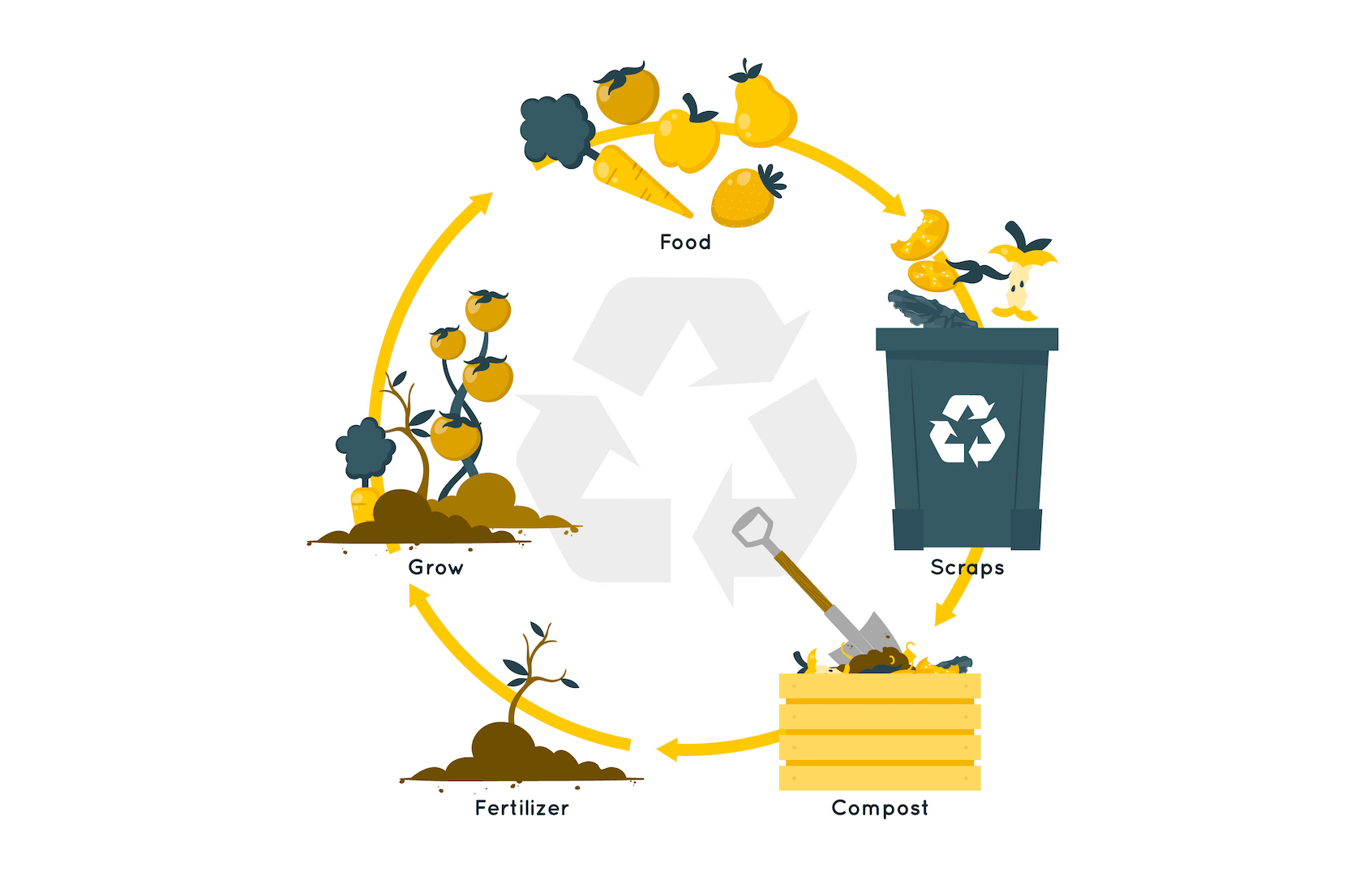Composting 101: Turning Kitchen Waste Into Garden Gold
- By Horticult_Admin
- 20th July 2024

“Composting is a controlled, aerobic (oxygen-required) process that converts organic materials into a nutrient-rich, biologically stable soil amendment or mulch through natural decomposition. The end product is compost. Microorganisms feed on the materials added to the compost pile during the composting process. They use carbon and nitrogen to grow and reproduce, water to digest materials, and oxygen to breathe.” — US EPA
Benefits of Home Composting
- Natural recycling process
- Reduces waste disposal
- Alternative to chemical fertilizers
- Improves soil structure and quality for healthy plant growth
- Helps reduce global warming
48-60% of waste in Indian homes is organic and can be composted.
Principles of Composting:
Optimal aerobic decomposition requires a balance of nitrogen, carbon, moisture, and oxygen. This process results in compost along with leachate, carbon dioxide, and heat. Unlike anaerobic composting, this aerobic process does not produce unpleasant odours. The composting process takes approximately one and a half to three months.
What Can Be Composted?
- Green: Organic kitchen and food waste, grass, and green garden cuttings provide moisture and food for microbes.
- Brown: Dry and dead plant waste provides aeration, carbon, and energy for microbes.
A balance of green and brown waste makes for good compost.
What Not to Add to Your Compost Bins
- Meat
- Dairy products
- Greasy waste
- Bones
- Fish
- Citrus peels
- Garlic waste
- Tea bags made from unnatural material
Things Needed for Home Composting
- Appropriate composting bins with pores for aeration
- Kitchen and garden waste
- Cocopeat/coconut coir, sawdust, dry leaves, shredded newspaper, compost browns, or remix powder
Types of Home Composting Bins
- Stack: For flats and homes with space constraints
- Row: For homes without significant space constraints
- Earthen: Earthworm-friendly for homes and gardens
- Large: Wheelie bins for large families
Process for Composting:
- Collect kitchen waste in a container.
- Place a layer of cocopeat or alternative material at the bottom of the bin.
- Spread your organic waste.
- Place another layer of cocopeat or alternatives.
- Cover with a couple of layers of newspaper to control fruit flies.
- If the compost is too dry, add water for moisture.
- If too wet, add cocopeat or alternatives.
- Compost accelerators containing microbes or neem powder can be added but are not essential.
After one and a half to three months, when the compost is mature, sieve it to remove uncomposted material for recomposing. Your compost is now ready for use. Congratulations!
Challenges of Composting
- Black Soldier Fly Maggots: Harmless and beneficial for composting.
- Wet and Smelly Compost: This occurs when organic matter is compacted without oxygen, producing smelly gases. Use compost browns to achieve the right balance.
- Rats: Use appropriate compost bins to block access to rats.
- Lizards, Spiders, and Fruit Flies: These are part of the ecosystem, but you can use turmeric powder, borax powder, vinegar, or lemongrass essential oil spray to discourage these insects.
This article has taken some inputs from dailydump.org

Add A Comment